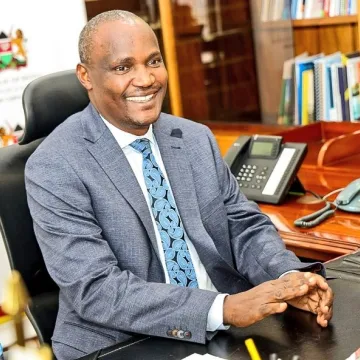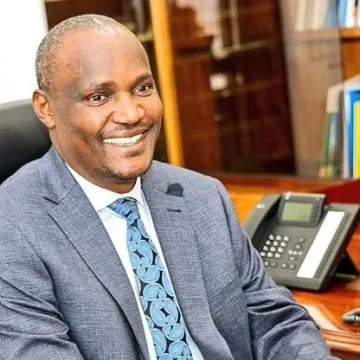Reprieve for counties as court halts mandatory use of e-procurement system

Wajir County Governor and Chair of the Council of Governors Ahmed Abdullahi who has been leading a call for delayed implementation of the Electronic Government Procurement System (e-GPS) by all Public Procurement Entities.
Just days after governors protested the stalling of services following insistence by the government that procurement must be done through the new platform, the High Court has suspended mandatory usage of the system by all public entities.
On Monday, the High Court issued conservatory orders, halting the mandatory use of the Electronic Government Procurement System (e-GPA), directing that affected entities can use either manual or paper-based systems.
“A conservatory order be and is hereby issued staying the decision of the Cabinet Secretary, National Treasury & Economic Planning and the Public Procurement Regulatory Authority’s circular No. Eo4/2025 which required the mandatory use of the Electronic Government Procurement System (e-GPS) by all Public Procurement Entities,” the order by Mr. Justice Bahati Namuye reads in part.
The directives follow a petition by Paul Ngwenyo Kirui and International Legal Consultancy Group Ltd, who faulted the order by CS Treasury John Mbadi on mandatory adoption of e-GPS, saying he need to provide for adequate participation from stakeholders before rolling out the system.
They argued that the initiative should have been preceded by adequate input, especially from representatives of county governments. Further, petitioners contested that for the procurement system to work smoothly, there should be a legal framework supporting and guiding its operations. The judge has set the hearing of the case on 14th October.
Last week, County Governors warned that the mandatory usage of the e-procurement system was driving operations to a halt with critical services including health and agriculture unable to meet urgent needs.
During a media update, Wajir County Governor and Chair of the Council of Governors Ahmed Abdullahi said: “The system has disrupted our ability to deliver essential services. We are not against digitization, but counties need training, consultations, and adequate resources before this becomes mandatory.”
The CoG called on CS John Mbadi to withdraw the directive on mandatory adoption of the system and allow proper consultations, legal alignment, and capacity-building before its implementation across the devolved units.
Mandatory adoption
The National Government has been pushing hard for mandatory adoption of the e-procurement system with Treasury CS last week dismissing calls from stakeholders seek halt to the usage of the platform. The “train has left the station,” CS Mbadi stated last week.
Since the start of the 2025/26 fiscal year, procurement offices across the counties have been unable to process tenders, delaying the purchase of essential goods and services, a system hitch that is attributable to the Treasury’s delay in uploading critical details on budget from the Integrated Financial Management Information System to the e-GP platform.
For instance, in Kiambu County, media reported that up to 123 facilities were running with less than 20 percent of their needed stock of medicines. What’s more, a number of counties reported inability to buy seeds in time, jeopardizing food security in the country.
According to President William Ruto, the government is determined to ensure full compliance across all procuring entities as part of a broad plan to stem graft practices in the purchase of goods and services.
“We are going to implement e-procurement; there is no going back,” Dr. Ruto said last week, fingering what he termed as rogue officials who are making a spirited push to circumvent the system. County Governors, however, claimed the President’s remarks were directed at officials outside of the county governance system.





